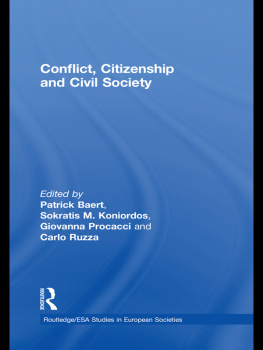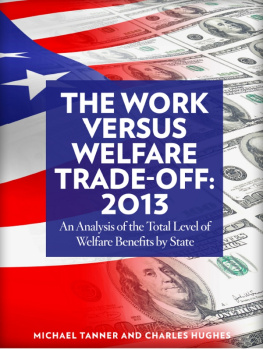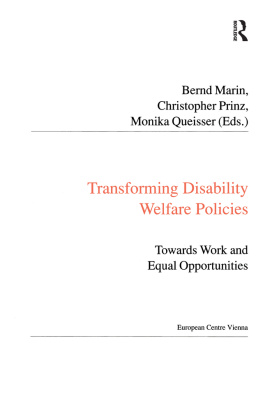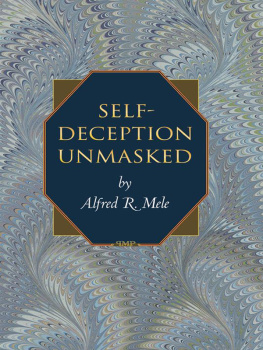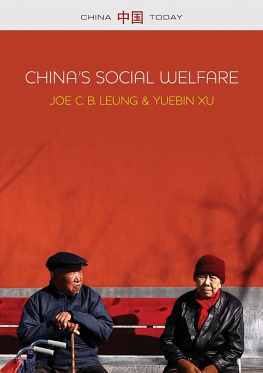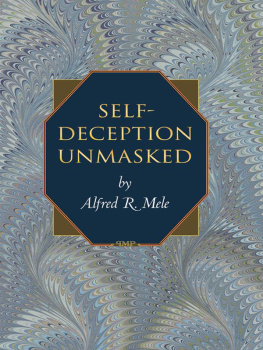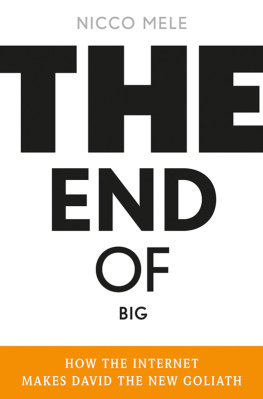Civil Penalties,
Social Consequences
Civil Penalties,
Social Consequences
Edited by
Christopher Mele and Teresa A. Miller
Routledge
New York London
Published in 2005 by
Routledge
270 Madison Avenue
New York, NY 10016
www.routledge-ny.com
Published in Great Britain by
Routledge
2 Park Square
Milton Park, Abingdon,
Oxon, OX14 4RN
www.routledge.co.uk
Copyright 2005 by Taylor & Francis Books, Inc.
Routledge is an imprint of the Taylor & Francis Group.
Printed in the United States of America on acid-free paper.
All rights reserved. No part of this book may be reprinted or reproduced or utilized in any form or by any electronic, mechanical, or other means, now known or hereafter invented, including photocopying and recording, or in any information storage or retrieval system, without permission in writing from the publishers.
10 9 8 7 6 5 4 3 2 1
Library of Congress Cataloging-in-Publication Data
Civil penalties, social consequences / Christopher Mele and Teresa A. Miller, editors.
p. cm.
Includes bibliographical references and index.
ISBN 0-415-94823-1 (hardback : alk. paper)ISBN 0-415-94824-X (pbk.: alk. paper)
1. Ex-convictsCivil rightsUnited States. 2. Ex-convictsLegal status, laws, etc.United States. 3. Ex-convictsUnited StatesSocial conditions. 4. Ex-convictsGovernment policyUnited States. 5. Civil penalties United States. I. Mele, Christopher. II. Miller, Teresa (Teresa Ann) 1962-
HV9304.C52 2004
364.8'0973dc22
2004016642
For John, Laura, and Melissa, in memory of their mother, my sister Lisa.CM
In memory of my mother, Dr. Henrietta T. Dabney, and her devoted employee, Carol Daniel. Carol perished unexpectedly on a dark, rainy road in rural Virginia making her way home from a correctional facility where she was visiting her long-incarcerated son.TM
Contents
Acknowledgments
We are grateful for support, monetary and otherwise, from the Baldy Center for Law and Social Policy and the College of Arts and Sciences at the University at Buffalo. We are especially thankful to Laura Mangan, Ellen Kausner, and Ann Gaulin of the Baldy Center for helping us to plan and hold the Locked Up, then Locked Out conference in October 2002 and the Baldy Centers director, Lynn Mather, for her support of the publication of this volume.
We are indebted to our research and editorial assistants, Jane Morris, Andrea Volker, Emilie Broderick, Cindy Cooper, and Meghan Dyer at the University at Buffalo and Vaughn Browne at the University of Miami. We thank them for their many hours of research, reading, and editing. Our gratitude also goes to James Gardner and Laura Mangan for reading and commenting on earlier versions of the manuscript.
Finally, we wish to thank the authors whose work appears in this volume.
Introduction
CHRISTOPHER MELE AND TERESA A. MILLER
The impetus for publishing this collection surfaced in the final discussion of a two-day workshop on the subject of collateral civil penalties and consequences of felony convictions entitled Locked Up, then Locked Out, organized by the two co-editors through the University at Buffalos Baldy Center for Law and Social Policy in October 2002. Our purpose for holding the conference was to bring together sociologists, urbanists, criminologists, lawyers, legal scholars, and legal rights advocates in order to discuss the legal and social ramifications of collateral civil penalties.
We use the term collateral civil penalties to characterize a host of legal restrictions that have come to hinder, in very real ways, the life chances for a large number of disadvantaged individuals, their families, and communities in the poorest sections of U.S. cities. The term itself is both awkward and imprecise, as the civil and collateral nature of the penalties is contested by many, including ourselves. Nevertheless we use the term (1) because it is more accurate than other terms, such as civil disabilities or collateral conesquences, that fail to adequately emphasize the punitive nature of the sanctions and (2) because it makes the irony inherent in the term that much more prominent.
As the terminology suggests, collateral civil penalties differ from the standard forms of punishment for criminal behavior, such as a prison sentence, probation, or parole, that are meted out by the criminal justice system; they are created and enforced by civil, not criminal, law and they are collateral in the sense that they apply to individuals, concomitant with a felony conviction. The penalties include sanctions on certain types of employment, housing, education, welfare eligibility, parental rights, and protections from deportation (for noncitizens). And although they legally apply to individuals, their effects on earning an income and finding a place to live, among other basic necessities, are felt by entire families. Most of the new collateral penalties are tied to convictions for nonviolent drug-related crimes, and their effects are clustered within mostly poor, inner-city communities. Other penalties have since emerged or have been strengthened in the domestic version of the War on Terror, targeting particular immigrant communities.
In the recent past, the academic focus on this phenomenon has largely been the domain of legal scholars. Contemporary realities of mass imprisonment and the U.S. governments recent investment in internal security necessitate an interdisciplinary discussion that crosses the boundaries of law and social science. Since the advent of the Wars on Drugs and Terror, the volume of criminal convictions, incarceration rates, and the number of deportations have increased dramatically and the legislation imposing new collateral civil penalties or strengthening older ones has proliferated. As a result, collateral penalties have become not only more severe, but also unhinged from the traditional justifications for their imposition. Nonviolent, low-level drug offendersthe majority of those incarcerated under mandatory minimum and three strikes drug lawsare currently subjected to penalties upon release that more than hinder their ability to reenter society. Just as alarming, the consequences of these penalties have moved well beyond the individual ex-offender to families and entire communities. These developments demand an interdisciplinary perspective that this book seeks to provide.
The two co-editors come to this topic from very different academic backgrounds and experiences. As an urban sociologist studying mobilization among resident organizations in public housing projects in southeastern North Carolina, Christopher Mele routinely encountered collateral civil penalties in everyday fieldwork, thus seeing them at work but unaware of their legal or policy basis. As one example: a small number of African-American men would routinely assemble each morning at a street corner to wait for their girlfriends or wives, who were residents of a nearby housing project, to leave their apartments and cross the street to visit them. These men, who had been accused, arrested, or convicted of various criminal infractions, were barred from stepping foot on the project. For their female companions, the cost of permitting them to visit or stay the night was possible eviction under HUDs One Strike and Youre Out regulations, which have since been expanded and toughened. In this case, a civil measure (the threat of eviction) was employed to reduce the risk of criminal re-offending. Yet its social consequencesdivided families, the surveillance of intimacy, the stigma of past behavior, among otherswere even more pronounced.


